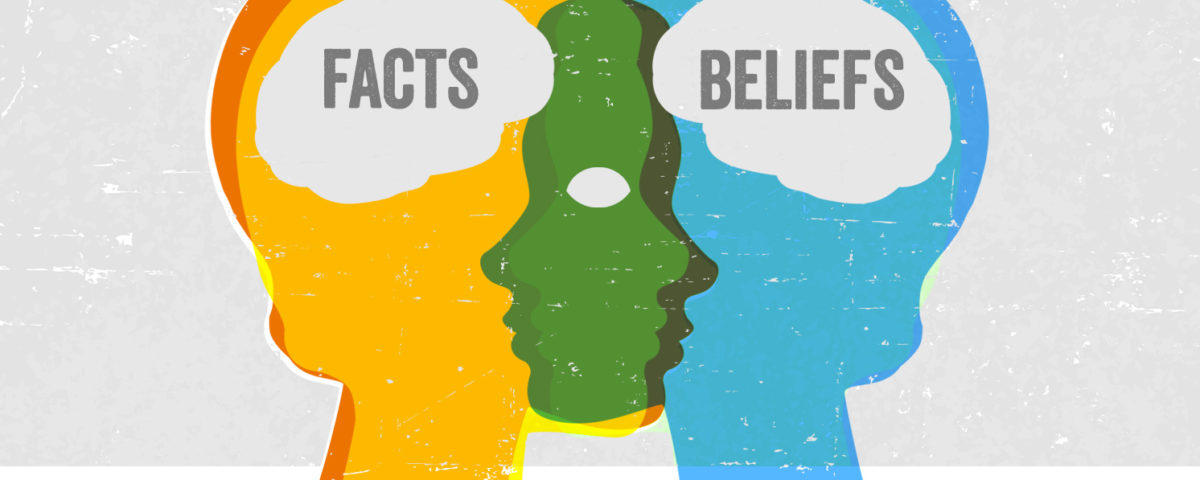- Contact Jane: jane.thilo@leadersgofirst.com or 206-718-8734 | Contact Rich: rich.doherty@leadersgofirst.com or 425-305-8877
Developing a Skeptical Mind

I was recently discussing the stark division in our country with some colleagues, and the conversation turned to how bias shapes pretty much everything around us, including our own views. With the constant deluge of media and social media that fills our lives today, one thing I hear frequently is, “I don’t know what to listen to or what to believe. Everybody lies!” Two common reactions are to ignore everything and stay blissfully ignorant of what’s going on in the world, or to immerse oneself in the media that confirms one’s own bias – and there is plenty, regardless of which side you are on! In so doing, just like the ostrich who sticks its head in the sand you become vulnerable to manipulation by all kinds of forces.
Biases, which are strong beliefs held deeply in our subconscious minds, drive our opinions, decisions, and actions. It’s much easier to see bias in others, than it is to see it in oneself, however, if you accept the premise that we all have them, you’re one step closer to making a conscious choice. Recognition of your own biases opens the door to curiosity and curiosity opens the door to discernment. You can take control over whether to believe what you read, see, or hear.
As a coach, I help people identify their own biases and make conscious choices about whether those biases are serving them or whether they are getting in the way of understanding another’s perspective. I help them build competence around recognizing their own inherent biases and making conscious choices on whether to let bias drive their opinions, decisions, or actions. This has never been more important!
Over the past few years, I’ve developed a skeptical mind as I’ve studied the methods media employs to persuade/manipulate the reader, listener, or viewer. I don’t like being manipulated and I doubt that you do either! Now, before I hit LIKE, FORWARD, or RETWEET, I do my own research to understand the facts as best I can and to determine whether something is a fact or someone’s opinion. If it is opinion, I consider what biases the person might hold and take that into account. If all this checking seems overwhelming, you aren’t alone.
To streamline my discernment, I’ve identified a couple of sources that I find very helpful when I’m deciding what media to trust. The first one is here https://www.adfontesmedia.com/interactive-media-bias-chart-2/. This project was initially put together by an attorney whose name is Vanessa Ortero. Her company sells access to her graphics and research, but this link will give you an online interactive version for free.
On her Website, she describes her methodology, which, of course has its own bias, but she makes a conscious effort to examine for bias and mitigate. One thing I like about this site is that it factors in the quality of the media offerings to help me discriminate among various media outlets based on credibility of the source – earned over time following well established journalistic guidelines.
The other site I find helpful, uses a similar approach. The link is https://www.allsides.com/unbiased-balanced-news. Allsides rates media based on right, left, center. They have a non-biased search engine that surfaces articles from every perspective labeling them as right, left, or center so the user can read multiple perspectives and make up her own mind. They keep a list of media sources rated as to left, left center, center, right center, right. They do a good job of explaining their methodology and regularly update their list based on research and input from a large community of users from – you guessed it – all sides!
These insights into the level of bias and quality of a publication help me decide whether I will even waste my time reading something. I tend to stick to middle of the road or right/left of center and I look for credible sources based on facts. If something is either way right or way left, I might read it, but I keep that inherent bias in mind, especially if it’s an opinion piece.
Over the years, I’ve developed a finely tuned BS meter. If something sounds too outrageous to be true, especially if it triggers my anger or self-righteous justification button, it probably is. There are plenty of good sources for fact checking online; so, I put on my brakes and do some homework before I pass it along!
Whether you’re the leader of a huge organization, or just someone who is frustrated with the divisive discourse in our country, your opinion matters! I hope you find these suggestions helpful in your quest to be an educated citizen and to exercise choice. That has never been more important than it is now.
